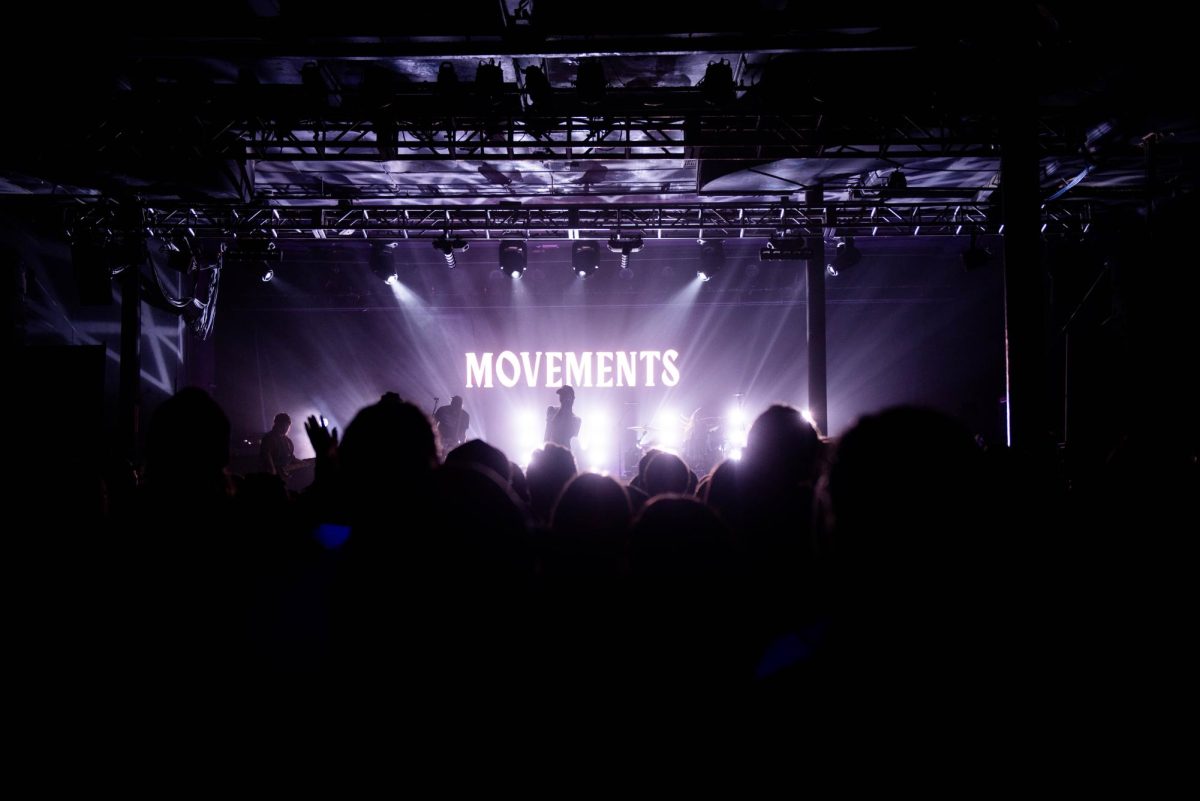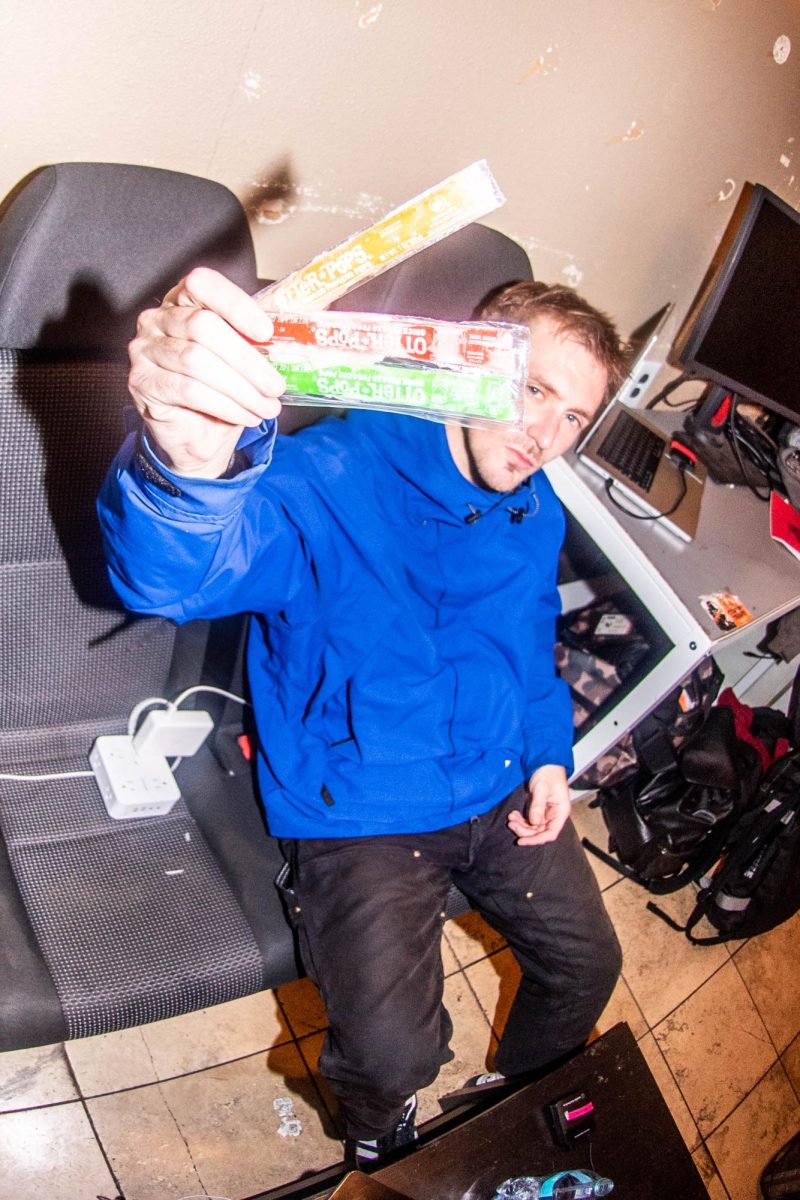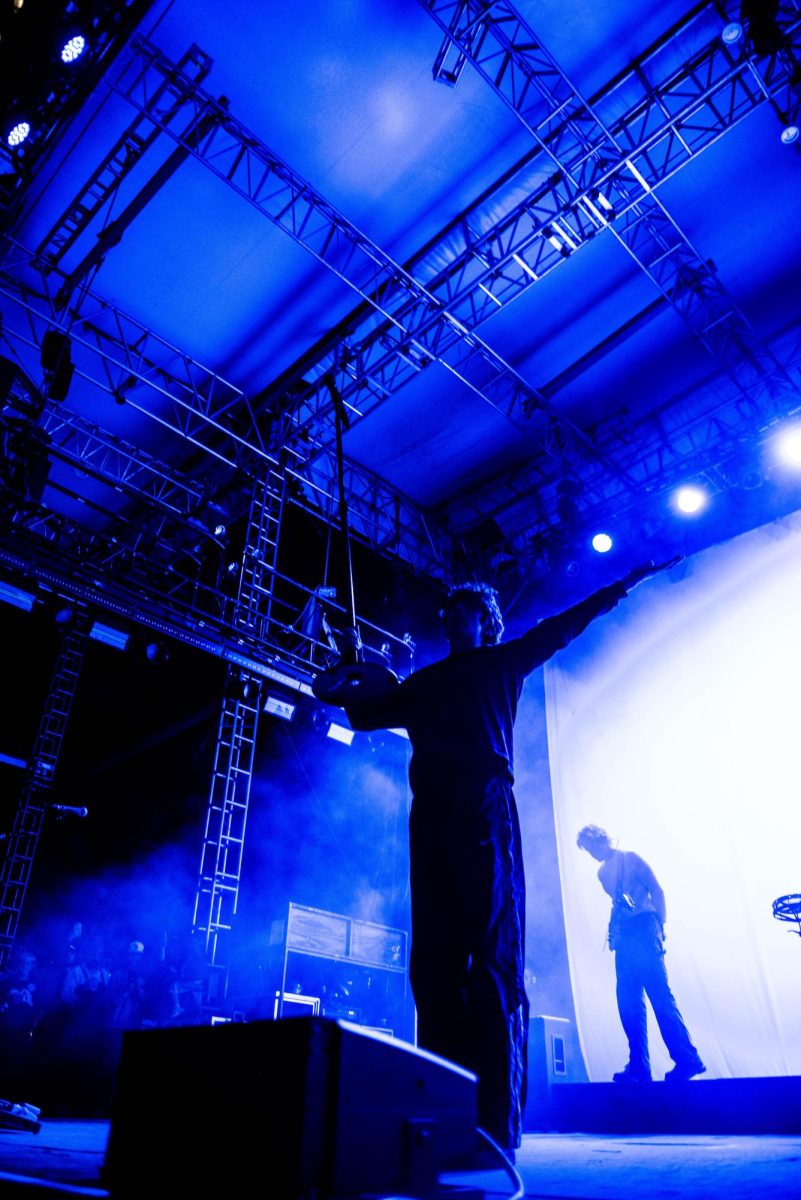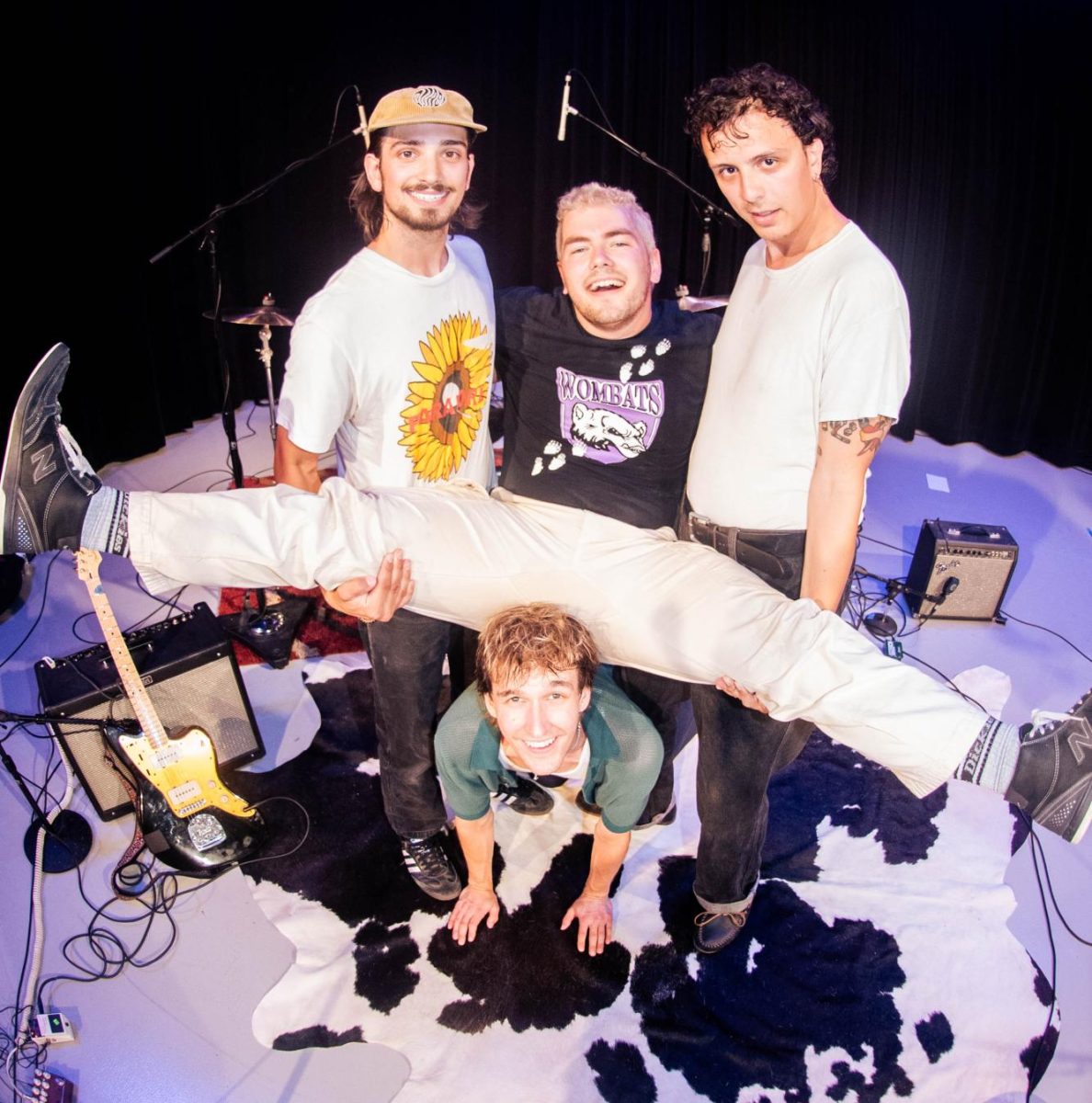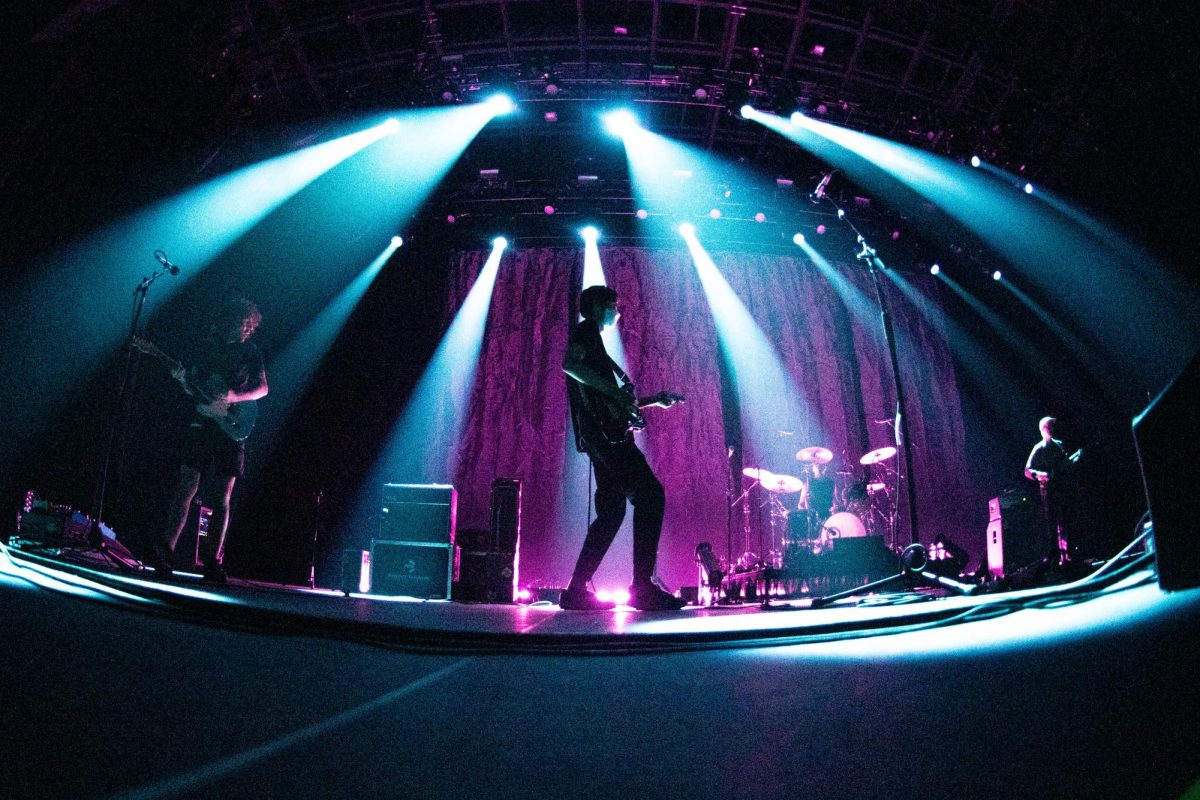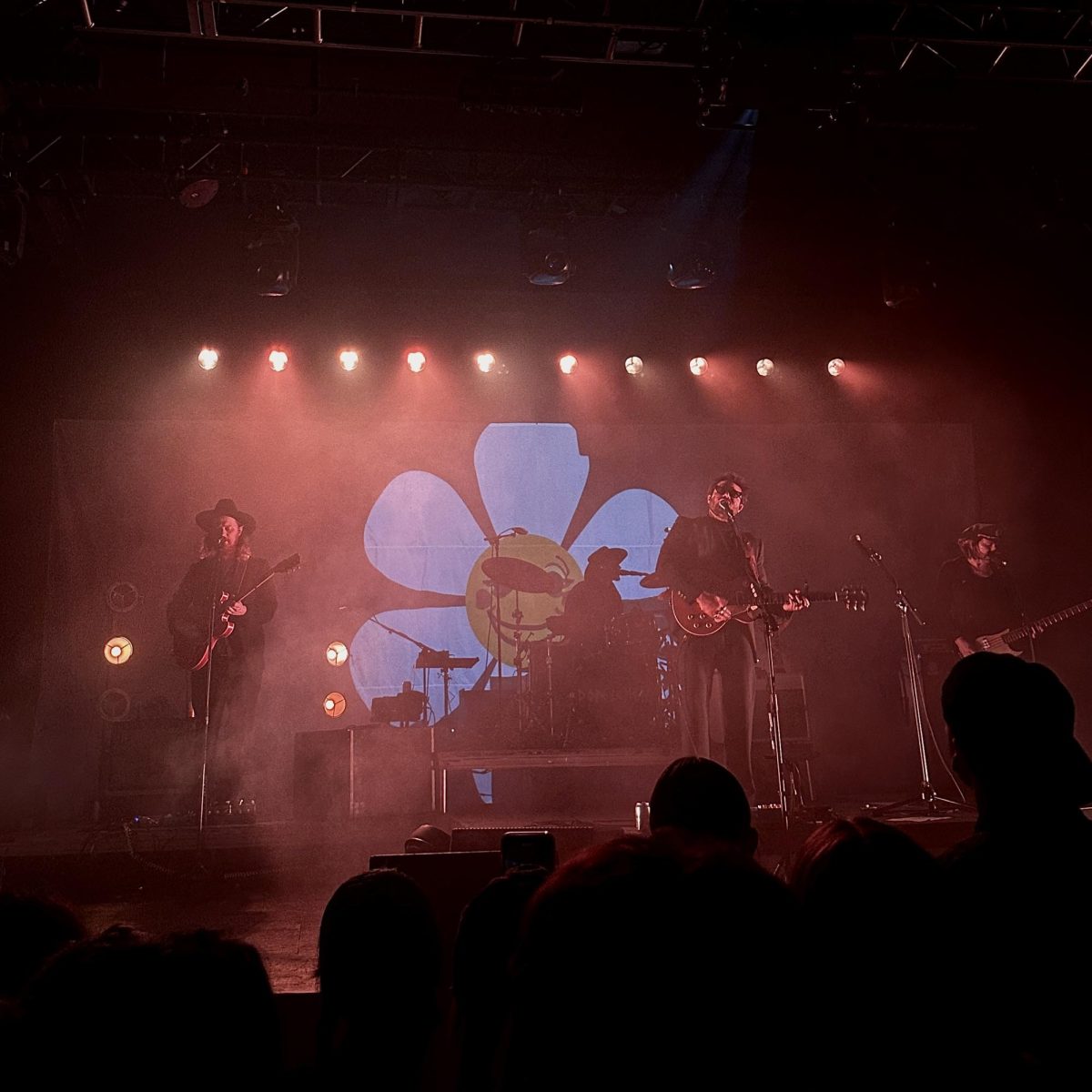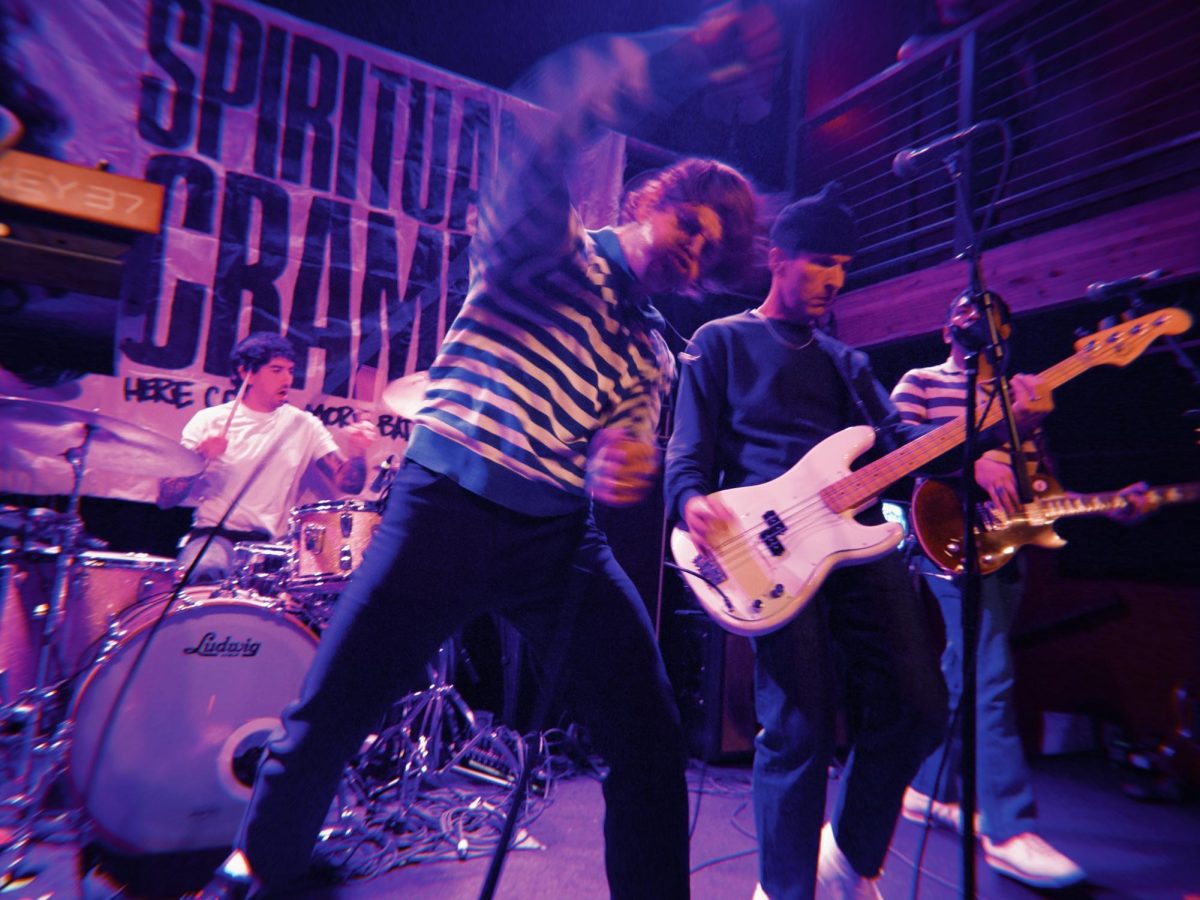April 1st, it’s finally spring in Portland. The cherry blossoms are budding, but the rain still falls relentlessly washing away the spring pollen clung to car windows. Inside the Roseland, the air is thick—not just with humidity or the smell of wet jackets—but with something heavier. Something clinging to cigarette smoke, the faint sweetness of Japanese menthol pear, and the static buzz of anticipation. The lobby’s packed tight, shoulder to shoulder, a sea of black hoodies and band tees pressed like sardines, endless pairs of big black boots cemented into the carpeted stairs of the Roseland. We’re here for Movements, the alternative rock band from Orange County, California, whose debut single “Protection” dropped a decade ago. Ten years later, they’re still loyal to the sound that captivated all the combat boot-wearing skinny black jean-worshiping teens of the mid-2010s.
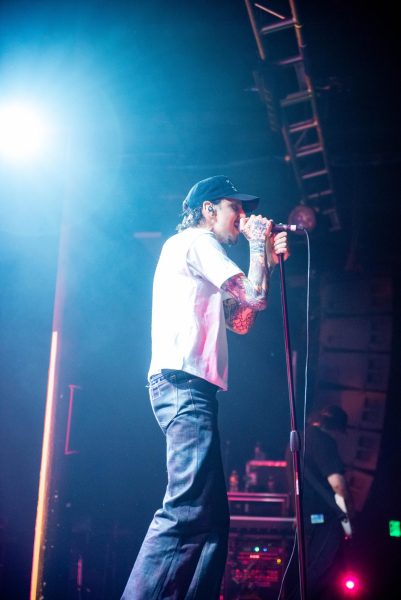
Their following hasn’t faded. If anything, it’s solidified into something cult-like, generational. I first found Movements on Tumblr during my sophomore year of high school. Like many freshly minted 16-year-olds, I stumbled upon their first full LP, Feel Something, right as the platform’s “soft grunge” aesthetic crested into mainstream emo culture. We clung to bands like Neck Deep, Basement, Citizen, and of course, Movements like they were gospel.
But it wasn’t just the aesthetic. It was the lyrics. It was the Daylily era.
“It’s been a while since you felt right
But the warm nights are coming soon and you’ll be just fine
You’ll be just fine
You’ll be just fine”
That refrain became a lifeline. I remember blasting Daylily through wired headphones connected to my iPhone 6, purple hair trailing down my back, black slip-on Converse scuffed from skipping 7th period to crawling through my best friend’s window. I spent that whole year smoking stolen cigarettes on her roof, talking about nothing, and running after the 7:15 am bus blasting Daylily.
Tonight, walking up the steep stairs of the Roseland feels like crossing a threshold—like entering a chapel only the select were invited to. The openers (Downward, Scowl, and Tumblr-era icon Citizen) set the tone for the night. When Movements finally steps onto the stage, bathed in hazy red and violet light, the crowd lets out a collective breath. We’re not just here to hear them, we feel them.
They open with “Afraid to Die,” its feedback ringing like a warning bell. Then we’re off, on a descent through heartbreak, rage, and reflection. Every song feels intentional, like the setlist is a guided narrative. Patrick Miranda’s voice is raw and exacting, emotional but never uncontrolled. Highlights like “Killing Time” and “Kept” carry the weight of confessionals, delivered with a restraint that teeters on the edge of collapse.
The guitars, especially that blood-red Wayfarer—glow under the lights, each note in half-step tuning bleeding warmth and tension. The entire band feels wired tight, like they’re holding something volatile just beneath the surface, refusing to let it detonate.
And then, after 90 minutes of screaming, crying, and crowd surfing, it happens.
The first notes of Daylily shimmer into the air. The crowd doesn’t explode like they did for “I Hope You Choke!”, they rise. Arms stretch up. Phones lower. People mouth the words before they’re even sung. In a single note we are collectively transported to where we were the first time we heard Daylily. When we get to “pink cloud summer,” it’s like mass communion. Voices layered on voices. Joy. Grief. Release. The Roseland isn’t just a venue now, it’s a sanctuary.
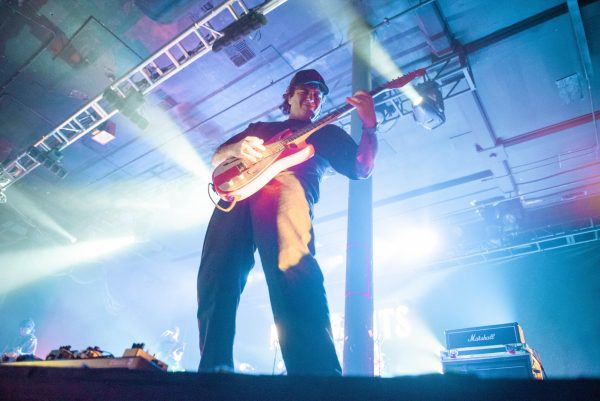
This is the duality that defines Movements: chaos and clarity, hurt and healing. They don’t just play their songs; they embody them, and they invite you to join them in the ache.
When the final note of Daylily fades, no one rushes to leave. People linger. Hug. Cry. Breathe. The energy doesn’t dissipate. It settles, heavy and warm, like grief. Like catharsis.
For 90 minutes, Movements gave us an escape. A reprieve from the world’s cruelty. A reminder that even in the darkest seasons, pink cloud summers still come.
In the chaos of the world, the despair, the grief of the future to come, I think all of Portland left that night with hope for a pink cloud summer.

